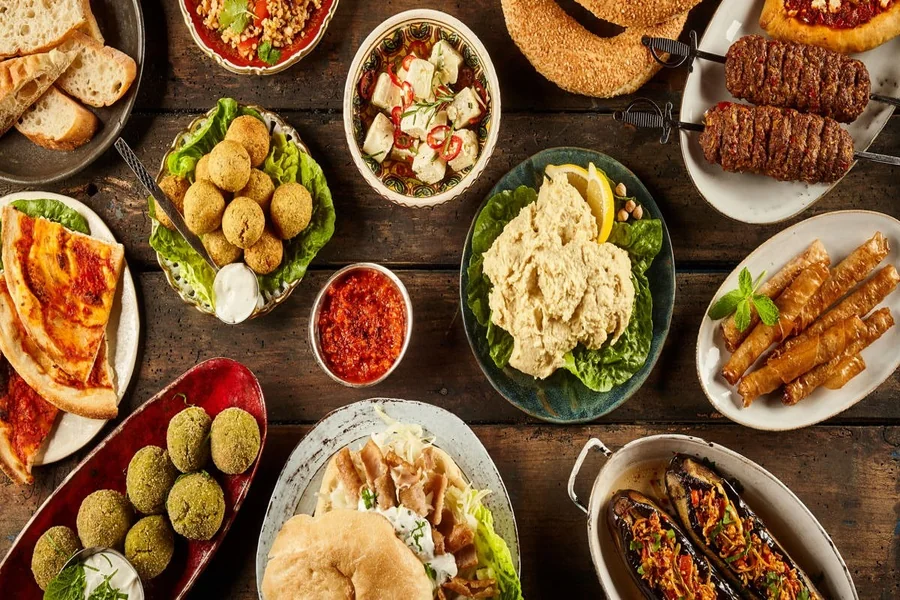Exploring the Riches of Middle Eastern Food Wholesale
The culinary world has long celebrated the diverse and robust flavours that Middle Eastern cuisine has to offer. Rooted in a myriad of cultural influences and a rich historical tapestry, Middle Eastern food has carved out a significant presence in the global food market. At the heart of this growing trend is the thriving sector of middle eastern food wholesale, which has become a pivotal component in delivering the region’s delectable gastronomy to a global audience.
The Appeal of Middle Eastern Cuisine
One cannot discuss Middle Eastern cuisine without acknowledging its unique allure. Characterized by an extensive use of herbs, spices, and fresh ingredients, these culinary traditions offer a palatable feast to the senses. It’s a cuisine that spans the rich, earthy flavours of cumin and cinnamon, to the fresh zest of mint and parsley. This complexity is what has endeared Middle Eastern food to gourmets and casual diners alike.
Diversity on the Plate
Within the Middle Eastern culinary repertoire, there’s a remarkable range of dishes that cater to various tastes and dietary preferences. From vegetarian delights like falafel and hummus to carnivorous fare such as kebabs and shawarmas, the versatility of Middle Eastern food is undeniable. This versatility is also pertinent when it comes to new food trends and dietary movements, marking it as a cuisine that continues to evolve and adapt.
Importance of Middle Eastern Food Wholesale
The proliferation of Middle Eastern cuisine on a global scale has been bolstered by the robust middle eastern food wholesale industry. Wholesalers play a crucial role in ensuring that restaurants, supermarkets, and specialty stores are supplied with authentic products and ingredients necessary to deliver an authentic Middle Eastern dining experience.
Challenges of Global Distribution
The process of distributing Middle Eastern food products across the world is not without its challenges. Factors such as preserving the freshness of ingredients, adhering to food safety regulations, and maintaining the integrity of traditional recipes demand meticulous attention from wholesalers. Furthermore, navigating the complexities of international trade laws and customs requires expertise in global commerce.
The Role of Wholesalers
Wholesalers adept in middle eastern food wholesale bridge the gap between small-scale producers in the Middle East who are renowned for their artisanal and traditional products, and the global market. They facilitate the bulk purchasing of goods, manage logistics and importation, and often provide marketing support for the products within various retail environments.
Quality Assurance
Maintaining the integrity of Middle Eastern flavours also means a strict adherence to quality. Successful wholesalers invest substantially in quality assurance, ensuring that both freshness and taste are preserved from the source to the plate. They work closely with suppliers to ensure that standards are met and that the authenticity of the food is not compromised.
Meet the Demand
Wholesale distributors are not just suppliers; they are also tuned into the current trends and demands of the food industry. They often guide retailers and restaurateurs on which products are popular, rising in demand, or in line with current dietary trends, such as organic or gluten-free options catered to health-conscious consumers.
Innovation in Distribution
In an era where technology reigns supreme, many wholesalers have turned to innovative solutions to enhance efficiency and reduce waste. This includes the implementation of advanced inventory systems, improved transportation logistics for perishable items, and even the use of big data to forecast consumer trends and manage supply chains more effectively.
Cultural Preservation through Cuisine
Beyond the economics of global distribution, wholesale of Middle Eastern food plays a role in the preservation and dissemination of culture. Food is an ambassador of cultural identity, and through its global distribution, the stories, traditions, and customs of the Middle East are shared and celebrated around the world.
Collaboration for Growth
The success of the Middle Eastern food market also relies on strong partnerships between wholesalers, retailers, and culinary professionals. This collaboration ensures that as the market for Middle Eastern cuisine grows, all stakeholders benefit. Through shared knowledge and mutual support, the distribution network grows stronger and more resilient.
Empowering Local Producers
Another significant aspect of wholesale is the empowerment it grants to local producers in the Middle East. By providing a conduit to international markets, wholesalers enable small-scale farmers and producers to sustain their livelihoods and, in turn, preserve their local agricultural practices and heritage.
Economic Impacts
The global appetite for Middle Eastern food continues to drive economic growth both within the Middle Eastern regions and abroad. As more consumers become enamoured with the cuisine’s rich tapestry of tastes and textures, the demand for these authentic flavours bolsters the entire supply chain, creating jobs and promoting international trade.
Conclusion
Exploring the world of middle eastern food wholesale reveals much more than just the logistics of food distribution; it uncovers a narrative of cultural exchange, economic empowerment, and a universal love for good food. As wholesalers navigate the challenges and harness the opportunities, they ensure that the warm, vibrant flavours of the Middle East continue to enrich dining tables worldwide.





